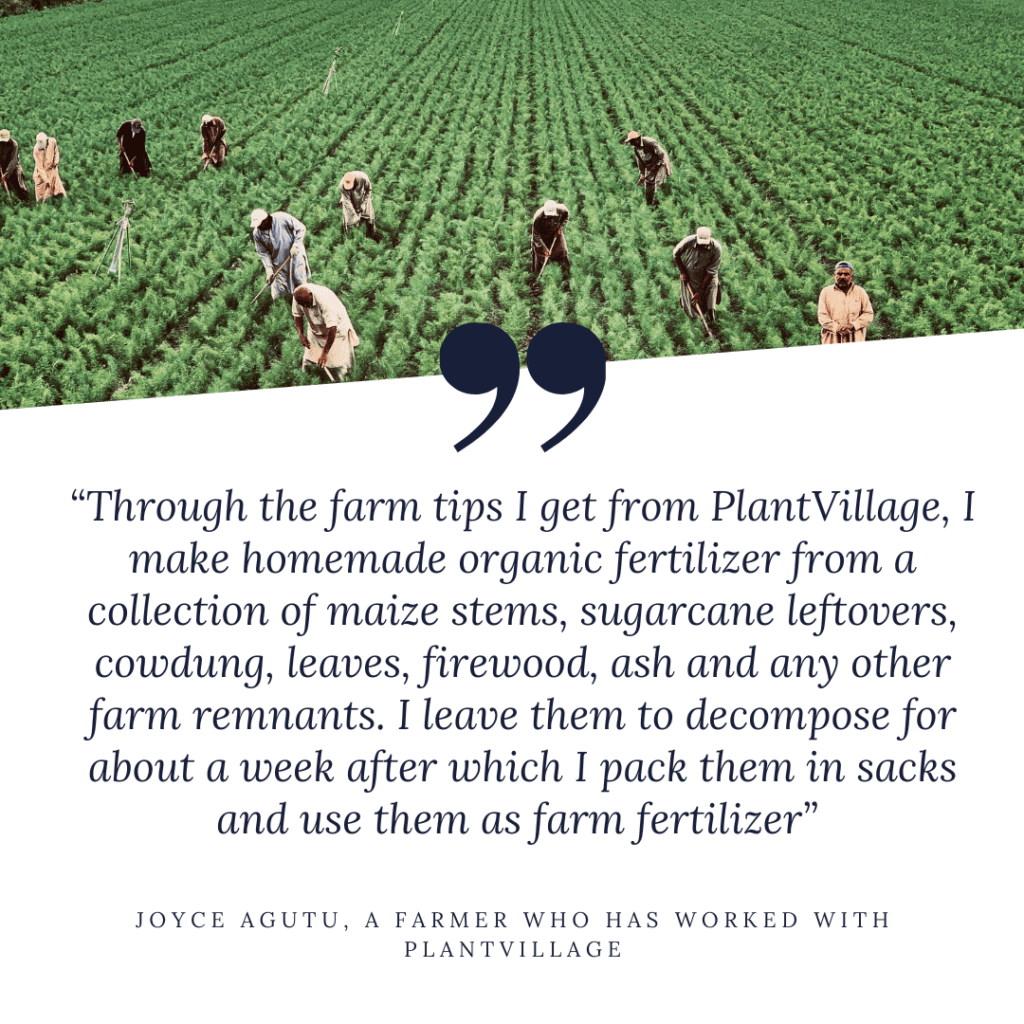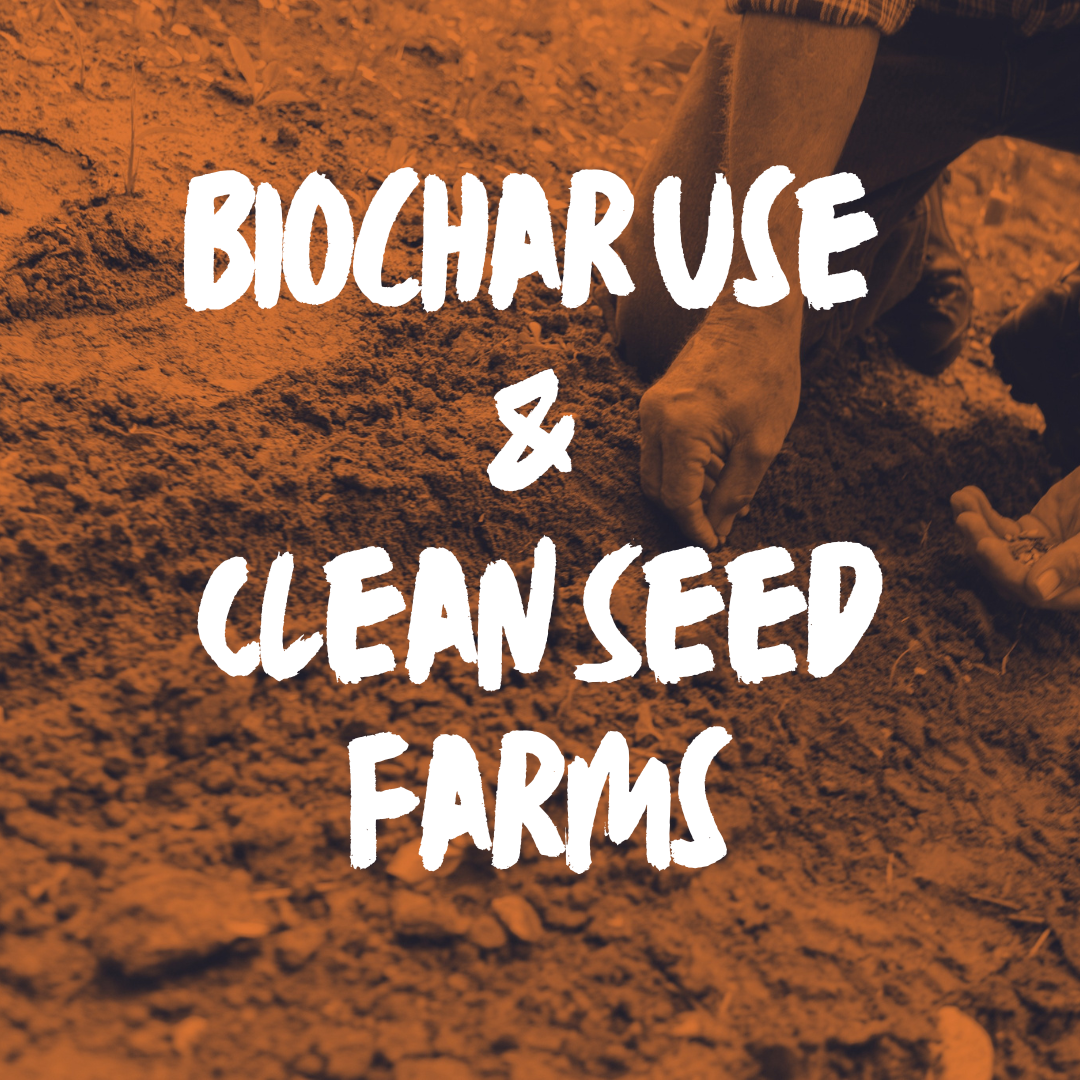Having partnered with the team at Plant Village in early 2022, introducing AI technology to farmers to allow for the identification and tackling of crop pests, we are excited to announce our latest joint venture.
Kick-starting in January 2023, we are introducing an initiative targeted at increasing the use of biochar alongside clean seed usage. As a consequence of climate change and agricultural malpractice, novel approaches to agriculture in Tanzania are needed now more than ever, with biochar and clean seeds, two of the exciting new solutions.
What is biochar?
Consisting of the carbon-rich remains of organic plant material, partially decomposed in a process called pyrolysis, biochar’s porous structure and high carbon content, make it an invaluable tool for farmers. Improving plant growth and enhancing overall crop yields when added to soil, is a sustainable and carbon-friendly practice, giving a multitude of benefits, derived from its physical, chemical and biological composition.
In areas where soil is barren due to the excessive use of fungicides and pesticides for instance, biochar’s unique honeycomb structure improves soil structure and allows populations of beneficial bacteria and fungus to proliferate, defending plant roots and subsequently fighting unwelcome pests.
This structure also increases soil aeration, water holding capacity and nutrient retention, whilst reducing compacting, markedly increasing overall crop yields. Meanwhile, its high carbon content is ideal for cation exchanges, affording plant roots more nutrients and preventing CO2 from being released into the atmosphere.
Biochar is thus highly efficient in converting carbon into a stable form, making it far cleaner than other forms of charcoal, whilst being less expensive and less harmful than inorganic forms of fertiliser.
As discussed by David Hughes, founder of Plant Village and Huck Chair in Global Food Security at Penn State University, biochar is also a critical means of side-stepping inconsistent global supplies of fertiliser, currently intensified due to Putin’s invasion of Ukraine. Biochar is, therefore, a cost-effective and more sustainable source of fertiliser, whilst local communities can generate income via the carbon credit system, gaining $125 per tonne of carbon.



Biochar and clean seeds
Once completed, the biochar can be placed alongside any seedlings or plants to benefit soil and enhance crop growth, with the long-term advantages of biochar stressed in the fact that a one-time application can remain in the soil for over 100 years. Nevertheless, whilst beneficial in and of itself, biochar is strengthened when combined with the use of “clean” seeds. These ideal seeds, separated from other infested or infected seeds, are often expensive and time-consuming to import, requiring innovative solutions.
Here, Plant Village’s Nuru, an AI diagnostic tool developed with the UN FAO, CGIAR, and other publicly funded institutions, is invaluable, not only identifying biotic and abiotic threats but enabling healthy plant material to be prioritised.
By discarding infected crops, healthy seeds can be cultivated for future use, giving farmers a plentiful supply of their strongest and “clean” crops. In Kenya, such “clean” seed approaches have been instrumental in improving agricultural output, with farmers using Plant Village’s mobile phone-based technology to replant entire fields with healthy Cassava if required.
Below, one such farmer demonstrates the easy and effective creation of biochar as well as its application, used here with “clean” Maize Plant 3M0F seeds, a drought-resistant crop used to maximise overall crop yields.

